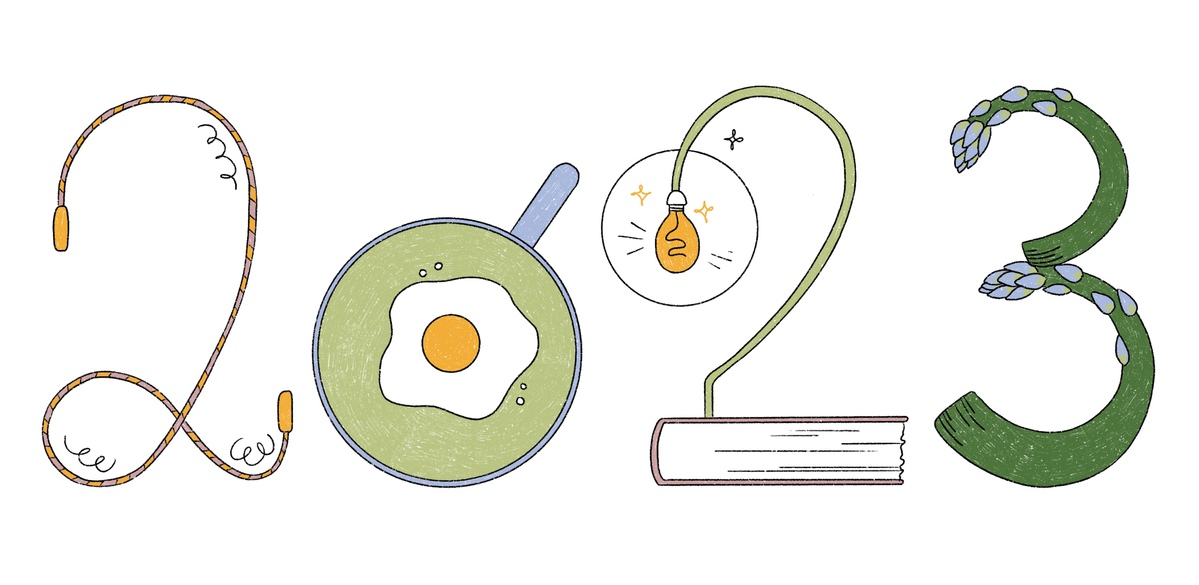The way we think about New Year’s resolutions is making us miserable.
Every year, millions of motivated people in the United States—about 44% of the population, according to a 2020 study published in PLOS One—seize on the new year as an opportunity to dramatically reshape their life. Every year, millions of people fail at that task. This isn’t a failure on their part, but rather a failure of how we think about self-improvement. New Year’s resolutions, if we ought to have them at all, should be less like a strict rule for how to behave for 12 months, and more like a gentle reminder to nudge our actions in a certain direction.
The evidence against “rule-style” resolutions is overwhelming. According to the study mentioned above, titled “A Large-Scale Experiment on New Year’s Resolutions: Approach-Oriented Goals Are More Successful Than Avoidance-Oriented Goals,” only 19% of participants followed through on their goal-oriented resolutions two years later—even one week in, 23% had already dropped off. This is hardly a model for long-term positive change.
As the title suggests, the study found that “approach-oriented” goals were significantly more successful than “avoidance-oriented” goals—“I want to cook more at home” is more likely to be effective than “I want to avoid eating out.” In other words, you are better served by putting agency in your own hands to do something, rather than to avoid something.
What does a good approach-oriented goal look like? Nearly every publication out there extols the virtues of “SMART goals”: Specific, Measurable, Achievable, Relevant and Time-Bound. The New York Times, Forbes, NPR and countless others recommend these SMART goals as “your best shot at success.” The idea, they say, is that limiting yourself to a narrow goal will lead to better adherence.
However, the authors of the PLOS One study note that resolutions which are “specific” and “time-framed,” like SMART goals, often lead to a greater feeling of failure and disappointment in oneself. For example, if you were to set a New Year’s resolution to “exercise for 60 minutes, three times a week,” there are twelve opportunities to fail in the first month alone. Say you only exercise for 45 minutes one day because you don’t feel well, or you only exercise two times one week because your schedule became unexpectedly hectic. The authors write that “a participant with a specific resolution…might consider oneself unsuccessful if he/she has not fully adhered to that pledge.”
To give an example from my own life: last year, I set a New Year’s resolution to “read one book a week; two weeks if the book is particularly large.” How generous of myself to add that caveat. Did I read more last year? Certainly. Did I read a book a week? Of course not. Life got in the way—heavy classwork, unexpected plans, an irregular work schedule—and even though I accomplished my goal of reading more, I wasn’t able to meet the specific, stringent goal I set for myself in January. As a result, whenever I thought about my resolution, I felt a pang of guilt, as though I had failed—I read over 30 books that year, but it wasn’t enough.
It’s tempting to attribute this failure to a simple defect in my character—that I just didn’t try hard enough. I would imagine many people feel the same way, if they haven’t sworn off of New Year’s resolutions altogether. So let’s take a step back from the treadmill of increasingly hyper-specific goals and embrace the uncertainty of life.
Why do we set New Year’s resolutions for ourselves? They’re usually motivated by a well-meaning desire to guide our lives in a positive direction. In this case, any improvement is a positive development. All that matters is that the trend line goes up, even by a small amount.
In the spirit of New Year’s leniency—and here I’m shamelessly stealing from CGP Grey—I suggest that we abandon New Year’s resolutions altogether, in favor of a New Year’s theme.
Setting a New Year’s theme simply means taking your self-improvement goal and describing it in the broadest, most fundamental terms. If your goal is to eat better, for instance, your theme would be something like “The Year of Health.” For me, I would have a “Year of Reading,” or even more loosely, a “Year of Knowledge.”
If these sound vague, it’s because they’re supposed to be. The benefit of having a New Year’s theme is that it is entirely adaptive to your circumstances: if you’ve had a hard week and can only get yourself to the gym for two days, that’s still action on the “Health” front. The same goes for if you make dinner at home one night and have takeout the next—the trend is net positive.
Setting a theme is a method of centering yourself toward your goal of positive change without the rigidity of a specific target or deadline. The target, after all, is consistent improvement in the long-term. Following your goal loosely for a year is a more desirable outcome than following it perfectly for a month, then quitting in February.
This year, think of your New Year’s goals like throwing darts: as long as you make it on the board, it counts. A bullseye is just a happy bonus.






